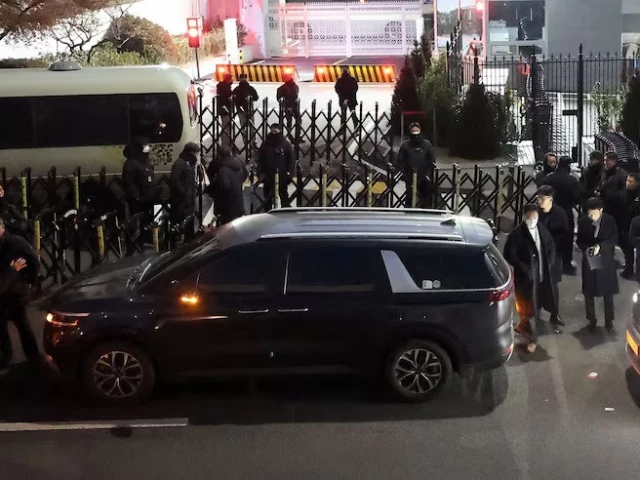Yoon faces arrest: protesters clash with investigators
Authorities entered Yoon Suk Yeol's compound, facing protesters outside and presidential security forces inside

South Korean authorities entered the residence of impeached President Yoon Suk Yeol on Friday to execute a historic arrest warrant, bypassing a crowd of protesters outside but encountering resistance from presidential security forces within.
The Presidential Security Service (PSS), which had previously blocked investigators from accessing Yoon’s office and official residence despite a search warrant, faced scrutiny over whether it would obstruct the arrest.
Yoon faces a criminal investigation for alleged insurrection related to his 3 December declaration of martial law, an action that shocked South Korea, a key Asian democracy and economic power. If carried out, this would mark the first arrest of a sitting South Korean president.
Investigators from the Corruption Investigation Office for High-ranking Officials (CIO), supported by police and prosecutors, arrived at Yoon’s compound early Friday morning. Their entry was initially impeded by a bus blocking the driveway.
Some officials entered on foot through an open gate but encountered additional obstructions, including another bus and an armoured vehicle, before advancing further.
Once inside, investigators confronted cordons of PSS personnel and military troops assigned to presidential security. The Ministry of National Defense confirmed that these troops were under the PSS’s command.
According to Yonhap News Agency, the PSS head asserted that authorities could not search Yoon’s residence. Yoon's lawyer labelled the arrest warrant unlawful, pledging to take legal action.
Outside Yoon's residence, protests intensified as rumours of the impending arrest spread. Hundreds gathered, some chanting slogans in support of Yoon, while others called for the arrest of the CIO chief.
Protesters, including 74-year-old Pyeong In-su, described their actions as patriotic. Pyeong, waving a US–South Korea flag, expressed hope that incoming US President Donald Trump would intervene on Yoon’s behalf.
The arrest warrant, valid until 6 January, allows investigators a 48-hour detention window to determine whether to pursue a further warrant or release Yoon. If detained, Yoon is expected to be held at the Seoul Detention Center.
The controversy stems from Yoon’s 3 December declaration of martial law, aimed at overcoming political deadlock and targeting alleged “anti-state forces.”
Within hours, 190 lawmakers overturned the decree, forcing Yoon to rescind it. Yoon later defended his actions, accusing political opponents of North Korean sympathies and alleging election interference without evidence.
Former Defence Minister Kim Yong-hyun, a key figure in the martial law decree, has already been detained and indicted on charges of insurrection and abuse of power. Notably, insurrection is among the few charges that do not grant immunity to a South Korean president.
Impeached and suspended from power on 14 December, Yoon awaits the Constitutional Court’s decision on whether to reinstate or permanently remove him. The court is set to hold a second hearing later on Friday.



















COMMENTS
Comments are moderated and generally will be posted if they are on-topic and not abusive.
For more information, please see our Comments FAQ